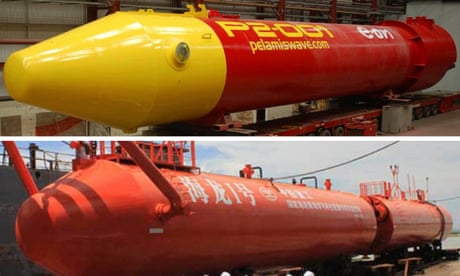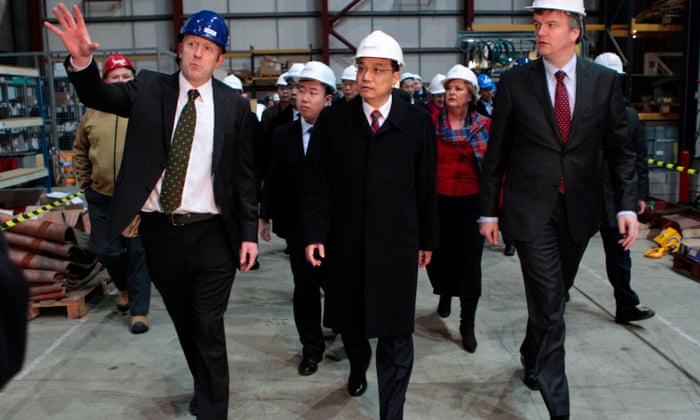Don’t be mad at the NBA. Hundreds of U.S. companies have sold out to Chinese tyrants.
By Sally JenkinsGet off the NBA’s back, all you people who want sports to be the children’s literature of your lost youth.
Somehow, because the Houston Rockets capitulated to their Chinese business partners, the league is now supposed to be a gutless violator of human rights?
You better start with General Electric.
Or KFC.
Or KFC.
Or how about Walmart?
It’s more than a little ludicrous for everyone from Ted Cruz to Beto O’Rourke to suddenly hand the NBA and the Rockets the tab for American toadying to authoritarians in Beijing.
It’s more than a little ludicrous for everyone from Ted Cruz to Beto O’Rourke to suddenly hand the NBA and the Rockets the tab for American toadying to authoritarians in Beijing.
If they want to draw that line in the sand, they can draw it with any of their favorite dozen American corporations — only that wouldn’t be so politically convenient, would it?
It’s easier to hurl righteous outrage and umbrage at a large target such as Rockets star James Harden, who on Monday apologized to China for "hurt feelings" at the behest of his bosses.
It’s easier to hurl righteous outrage and umbrage at a large target such as Rockets star James Harden, who on Monday apologized to China for "hurt feelings" at the behest of his bosses.
“We love China,” he said.
It’s far more pat and satisfying to go all-in at Rockets management for making General Manager Daryl Morey apologize for his tweet over the weekend in support of pro-democracy protesters in Hong Kong.
“I did not intend my tweet to cause any offense to Rockets fans and friends of mine in China,” he said in a statement.
And, boy, isn’t it an easy viral sound clip to accuse the entire NBA of “blatant prioritization of profits over human rights,” as O’Rourke did, and call it an embarrassment, simply because the league called the incident “regrettable” and tried to patch things up with Chinese dictators?
You want to be angry at the NBA for cowering in the face of China’s authoritarian regime?
And, boy, isn’t it an easy viral sound clip to accuse the entire NBA of “blatant prioritization of profits over human rights,” as O’Rourke did, and call it an embarrassment, simply because the league called the incident “regrettable” and tried to patch things up with Chinese dictators?
You want to be angry at the NBA for cowering in the face of China’s authoritarian regime?
You want to accuse NBA Commissioner Adam Silver of supporting a murderous dictatorship simply to further business interests in China?
Fine.
Good for you.
But understand the NBA is only imitating that smooth move patented by dozens of other fine, flag-waving American corporations in their dealings with China.
But understand the NBA is only imitating that smooth move patented by dozens of other fine, flag-waving American corporations in their dealings with China.
A half-dozen American corporate sponsors set the template a decade ago at the Beijing Olympics, when they colluded in the silencing of U.S. athletes and were far more directly complicit in a host of human rights violations.
Remember what champs Visa and General Electric were when the Chinese refused to grant entry to American athlete Joey Cheek because he had been too audible of an activist against abuses in Darfur?
Remember what champs Visa and General Electric were when the Chinese refused to grant entry to American athlete Joey Cheek because he had been too audible of an activist against abuses in Darfur?
And how about the courageous support Coca-Cola gave to Chinese dissidents when Beijing authorities cracked down on them in advance of those Games?
Never forget the standup position Johnson & Johnson took when Steven Spielberg quit as artistic director of the Opening and Closing Ceremonies because Beijing not only failed to honor a single one of the reform promises it had made in procuring the right to host the Games but actually went on a terroristic bender against its own citizens, destroying whole neighborhoods, enlisting slave labor and throwing anyone who didn’t like it into a camp.
Ford.
Never forget the standup position Johnson & Johnson took when Steven Spielberg quit as artistic director of the Opening and Closing Ceremonies because Beijing not only failed to honor a single one of the reform promises it had made in procuring the right to host the Games but actually went on a terroristic bender against its own citizens, destroying whole neighborhoods, enlisting slave labor and throwing anyone who didn’t like it into a camp.
Ford.
GM.
Starbucks.
Papa John’s.
All of them do massive business with China.
Abercrombie & Fitch.
Boeing.
Procter & Gamble.
Start with them.
All of them have long known what the conditions and equations are for doing business in the China market.
Australian journalist Geremie Barmé, who has covered China for many years, sums it up in a phrase: “contentious friendship.”
“To be a "friend" of China, the foreigner is often expected to stomach unpalatable situations, and keep silent in the face of egregious behavior,” he has written.
Australian journalist Geremie Barmé, who has covered China for many years, sums it up in a phrase: “contentious friendship.”
“To be a "friend" of China, the foreigner is often expected to stomach unpalatable situations, and keep silent in the face of egregious behavior,” he has written.
“A "friend" of China might enjoy the privilege of offering the occasional word of caution in private; in the public arena he or she is expected to have the good sense and courtesy to be ‘objective.’ That is to toe the line, whatever that happens to be. The concept of ‘friendship’ thus degenerates into little more than an effective tool for emotional blackmail and enforced complicity.”
Throughout the Beijing Olympics, American companies remained silent.
Throughout the Beijing Olympics, American companies remained silent.
So did IOC President Jacques Rogge.
When Rogge finally did open his mouth to protest someone’s conduct, it wasn’t anyone in China’s leaderships.
The man he decided to pick was Jamaican sprinter Usain Bolt, for his bad manners in celebrating too boldly.
The outrage at the NBA is more than a little remindful of that.
Yes, the NBA has made a mutually beneficial commercial accommodation with China.
Yes, the NBA has made a mutually beneficial commercial accommodation with China.
There are 800 million Chinese viewers of the league, according to Time, and there is a 30-year media partnership.
You have a problem with that or consider it gutless?
Then you have a problem with literally hundreds of American companies.



